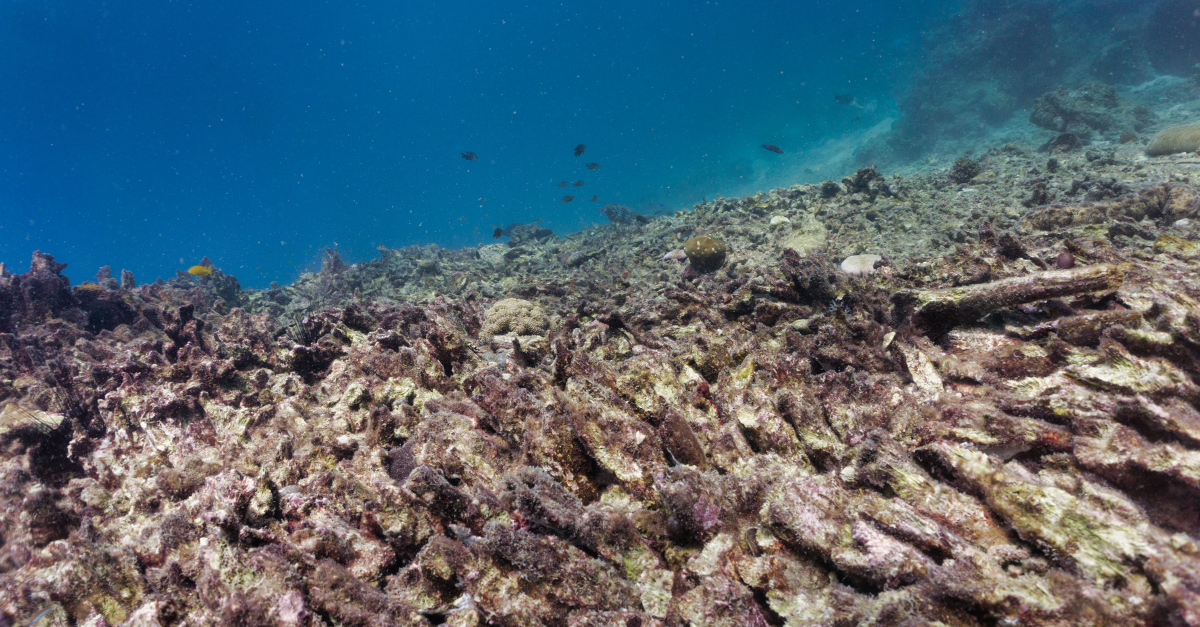Coral reefs are essential ecosystems, providing critical services to marine life and humans. However, pollutants carried by rivers and streams disrupt their delicate balance, creating a ripple effect that directly impacts human well-being.
Plastic Pollution: A Threat to Coral and Our Food Chain
Rivers transport vast amounts of plastic to the ocean, much of which accumulates in areas like the Great Pacific Garbage Patch. When these plastics break down into microplastics, they settle on coral reefs, smothering their surfaces and hindering their growth. Coral, a crucial habitat for marine life, suffers, and so do the fish populations that depend on it.
Humans feel the impact when these microplastics enter the food chain. Fish ingest these particles, and as they make their way to our plates, so does the plastic. This contamination poses health risks and jeopardises food security, making plastic pollution not just an environmental crisis but a public health issue.
Agricultural Runoff: Starving Coral Reefs, Impacting Livelihoods
Fertilisers and farm pesticides often end up in rivers, carrying them to the ocean. These excess nutrients trigger algal blooms, which block sunlight and consume oxygen in the water. Without light and oxygen, coral reefs—already sensitive ecosystems—begin to die off, leading to the creation of "dead zones" where marine life cannot survive.
For humans, the loss of coral reefs translates to diminished fisheries and the collapse of industries that rely on healthy oceans. Coral reefs also provide natural coastal protection, and their decline increases the vulnerability of coastal communities to storms and erosion, threatening homes, economies, and lives.
Sediment and Chemicals: Clouding the Ocean’s Future
Erosion from deforestation and industrial discharge introduces sediment and toxins into waterways. When these pollutants reach the ocean, they settle on coral reefs, blocking the sunlight coral needs to produce energy through photosynthesis. Industrial chemicals further poison these ecosystems, stunting coral growth and weakening their resilience to other stressors, such as climate change.
For humans, the degradation of coral reefs means losing one of the planet’s most important carbon sinks. Coral reefs play a significant role in regulating atmospheric carbon dioxide levels. As they decline, global warming and ocean acidification intensify, exacerbating climate-related challenges that impact us all.
Why Protecting Coral Reefs Matters to Humans
Coral reefs are not just underwater marvels—they are the foundation of marine biodiversity, the source of sustenance for millions of people, and a natural shield for coastal communities. The pollutants carried by rivers don’t just harm coral; they undermine ecosystems that humans depend on for food, livelihoods, and protection against climate change.
By addressing waterway pollution at its source, we protect coral reefs and ensure a sustainable future for the oceans and humanity. Clean rivers mean thriving reefs—and thriving reefs mean a healthier planet.
For more ways to reduce your water footprint or learn where to start when purchasing corals, be sure to visit us or get in touch with The Coral Centre team.

